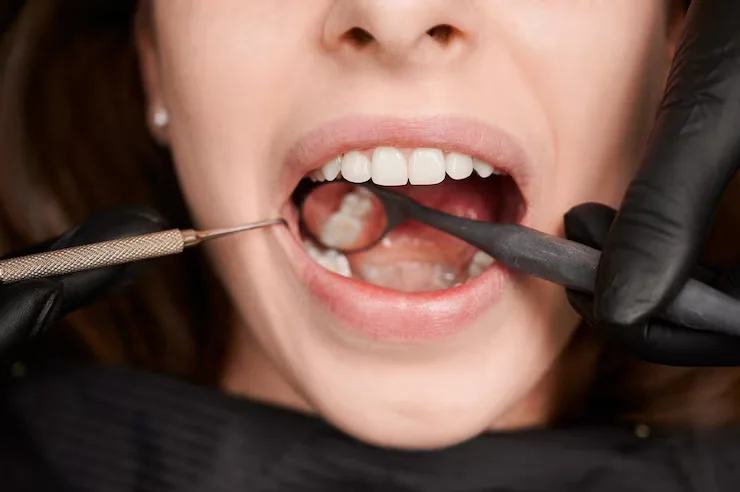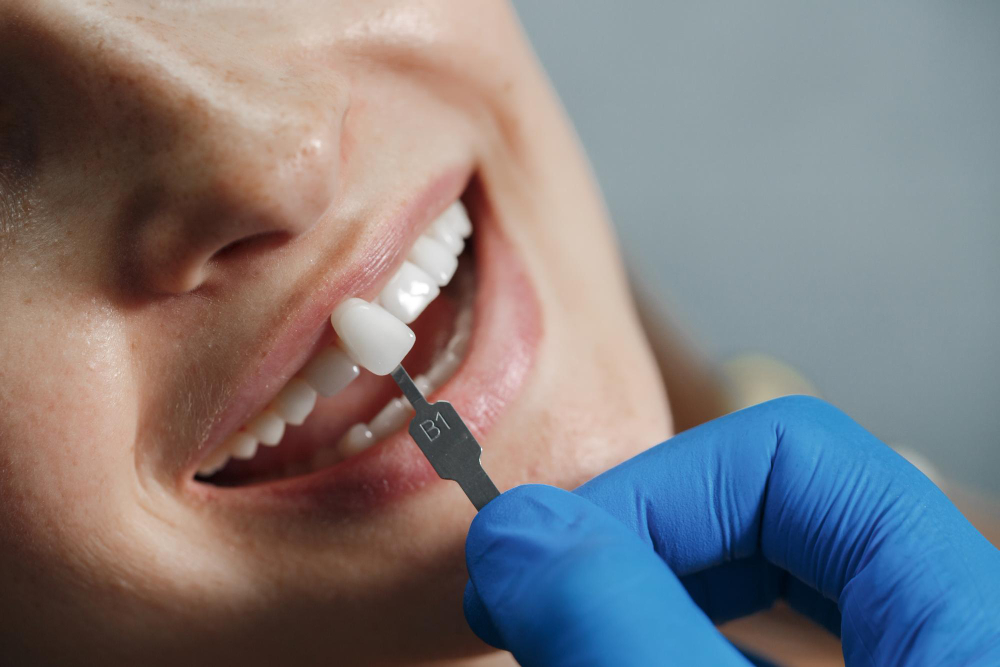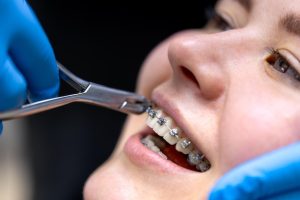Wisdom teeth removal is a dental procedure to extract the third set of molars, commonly referred to as “wisdom teeth.” This surgery is typically recommended when the tooth becomes impacted or causes complications.
The procedure for wisdom teeth extraction is generally conducted on an outpatient basis, with the patient under mild anesthesia. Although recovery may last up to six weeks, most individuals can resume regular activities within a day or two. It’s important to note that the recovery duration can vary depending your particular case and individual healing factors.
During the recovery phase, following the dentist’s instructions diligently is crucial. That includes taking prescribed pain medication, practicing oral hygiene, and adhering to dietary restrictions. By doing so, you can promote healing, minimize discomfort, and ensure a successful recovery from wisdom teeth extraction.
Why Should You Get Your Wisdom Teeth Removed?

There are several reasons why dentists may recommend wisdom teeth extraction:
- Impacted Teeth: When one or more of your wisdom teeth become partially or completely caught in the gums or jawbone.
- Misalignment: Wisdom teeth that grow in a crooked or sideways manner.
- Pain and Discomfort: Development of pain in the back of the mouth.
- Food and Debris Trapping: Wisdom teeth that tend to trap food particles and debris, leading to hygiene challenges.
- Gum Disease: Increased susceptibility to gum disease, particularly around the molars.
- Tooth Decay: Cavities in partially erupted wisdom teeth.
- Cysts Formation: Formation of fluid-filled sacs (cysts) around one or more wisdom teeth.
- Damage to Nearby Teeth and Bone: Potential damage to adjacent teeth or the surrounding bone.
Preparing for Wisdom Teeth Removal
Here’s how you can prepare for your wisdom teeth removal surgery.
- Wear loose, comfortable clothes for the procedure.
- Follow your surgeon’s instructions regarding eating and drinking before surgery.
- Certain medications, tobacco, and alcohol must be avoided before the surgery.
- Soft or liquid foods, like smoothies and yogurt, are recommended for post-surgery recovery.
- Speak to a friend or family member beforehand to drive you home after the procedure, as you may be groggy from anesthesia.
What Happens During Wisdom Teeth Removal Surgery?
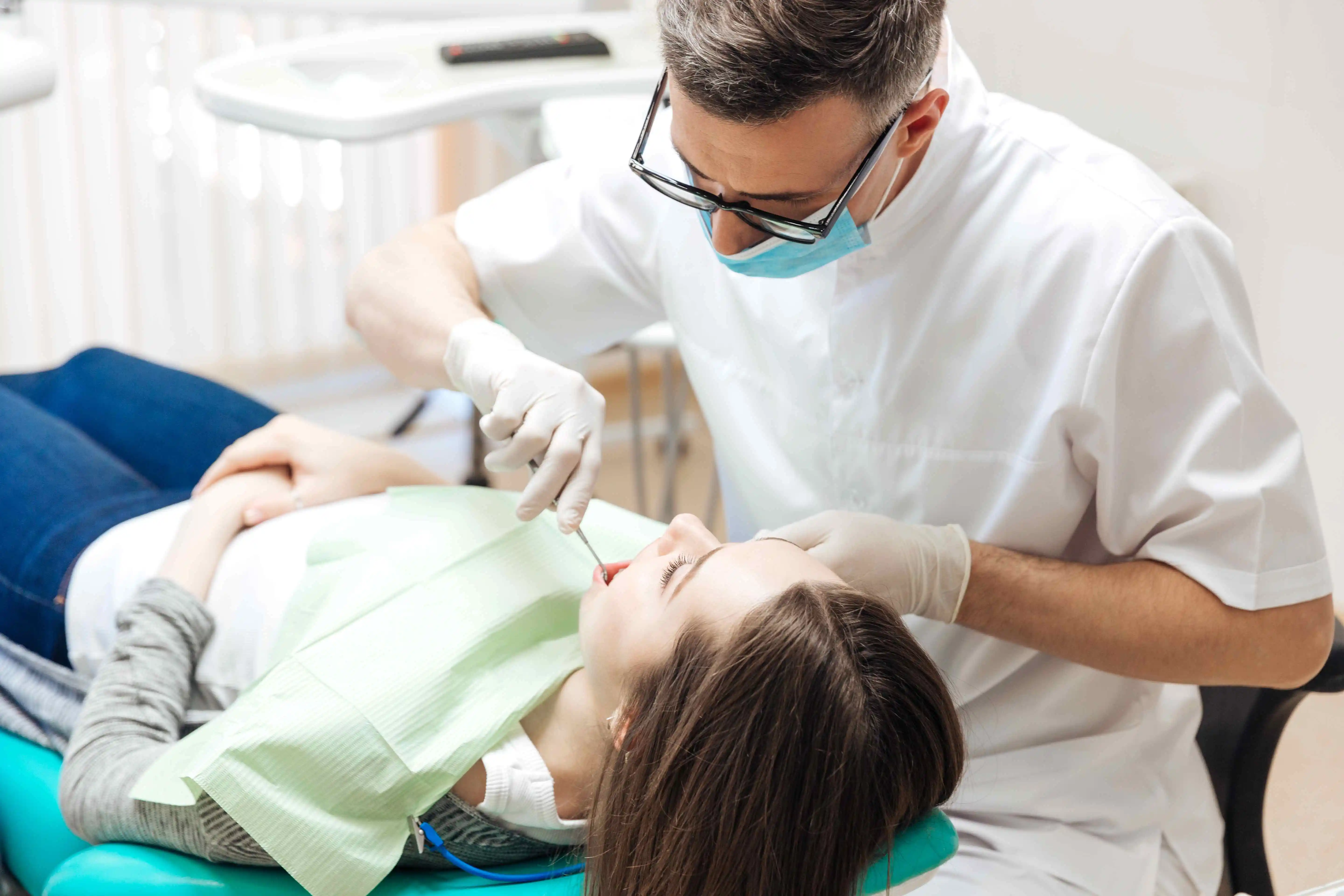
During the wisdom teeth extraction procedure, the following steps are typically involved:
- Administration of Anesthesia: Your dentist will administer anesthesia to numb your teeth and gums for a comfortable experience. If you opt for sedation, they will provide you with sedative medications to help you relax.
- Incisions (if necessary): If your wisdom teeth are trapped in your gums or jawbone, your dentist may need to make incisions (cuts) to expose the teeth properly.
- Tooth Extraction: With careful precision, your dentist will loosen the wisdom tooth and lift it from its socket. Sometimes, the tooth may be divided into sections to facilitate easier removal.
- Cleaning the Area: After removing the tooth, the area will be thoroughly cleaned to ensure there is no risk of infection.
- Stitches (if necessary): If required, your dentist may place stitches to close the surgical site and aid in healing.
- Gauze Placement: Gauze will be placed over the extraction site to help control and slow bleeding.
How Many Days Does It Take to Recover from Wisdom Teeth Removal?
On average, the recovery period for wisdom teeth removal lasts about one to two weeks. However, most individuals can return to regular school, work, and daily routines within three to five days. Your surgeon will provide specific and detailed postoperative instructions to ensure your comfort and aid in healing. Following these instructions will help promote a smooth and comfortable recovery.
Dos & Don’ts After Wisdom Teeth Removal
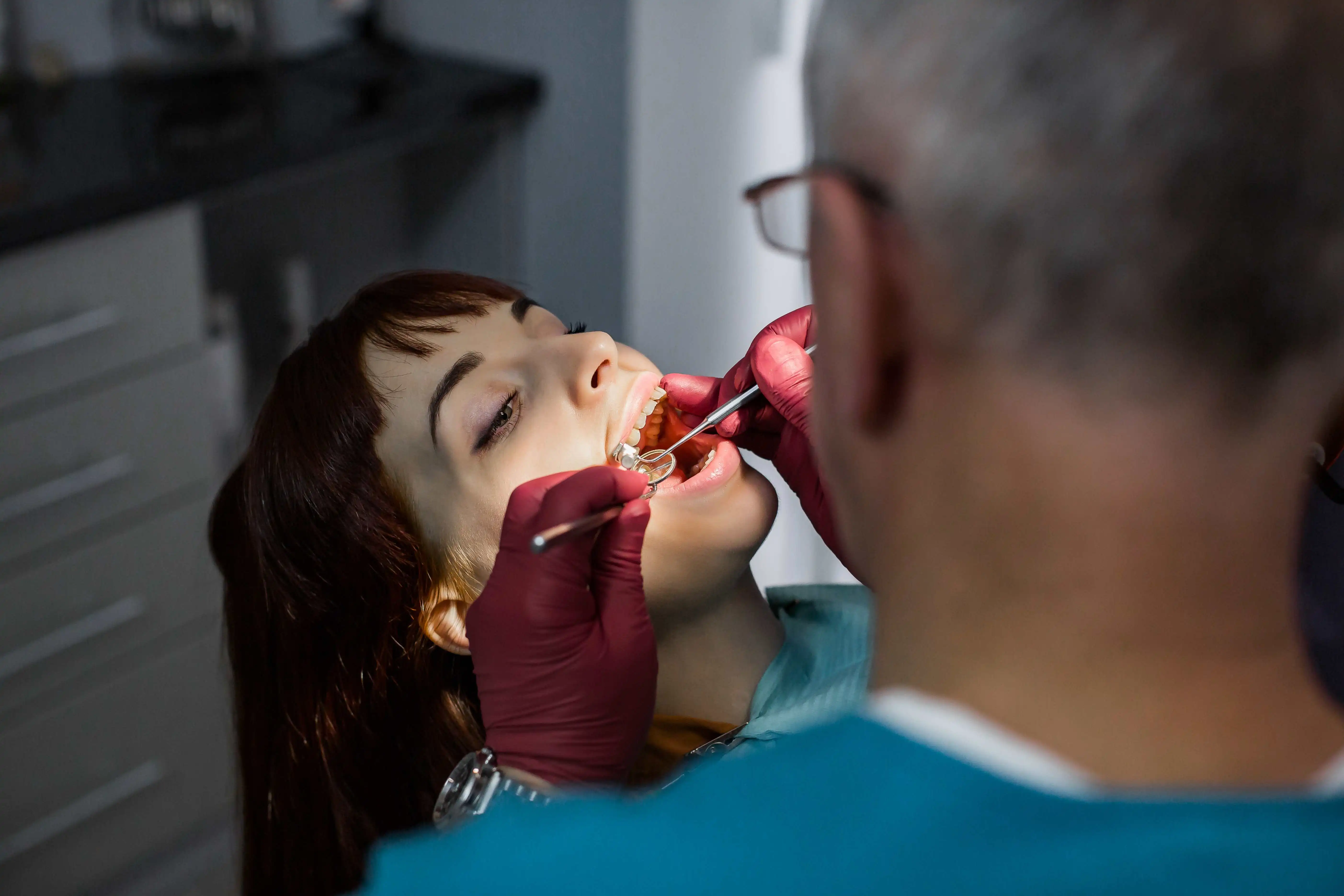
Things You Should Do After Wisdom Teeth Removal
- Leave gauze in place for about 30 minutes after surgery and replace if necessary.
- Rest and recover for at least three to five days, avoiding physically demanding activities.
- Apply ice packs wrapped in a towel for a gap of 20 minutes to reduce swelling.
- Keep extraction sites clean by gently soaking them with alcohol-free antibacterial mouthwash.
- Brush and floss your remaining teeth on a daily basis, avoiding the extraction sites.
- Take prescribed medications as instructed to manage pain and reduce infection risk.
Things You Shouldn’t Do After Wisdom Teeth Removal
- Drink through a straw, as it can dislodge blood clots and lead to dry sockets.
- Engage in exercise or heavy lifting until approved by your surgeon.
- Consume hard, crunchy, or chewy foods that can harm healing gums.
- Drink carbonated or alcoholic beverages, which may dislodge blood clots. Avoid these for at least five days.
What Are the Side Effects of Removing Your Wisdom Teeth?
In most cases, wisdom tooth extractions do not lead to long-term complications. However, removing impacted wisdom teeth may occasionally require a surgical approach involving incisions in the gum tissue and bone removal. Although rare, potential complications can include:
- Painful Dry Socket: It occurs when the blood clot that forms at the surgical site (socket) is lost, exposing the underlying bone and causing discomfort.
- Socket Infection: Infection can occur in the socket due to bacteria or trapped food particles.
- Damage to Adjacent Teeth, Nerves, Jawbone, or Sinuses: In rare instances, nearby teeth, nerves, jawbone, or sinuses may sustain damage during the procedure.
How Much Does Wisdom Teeth Removal Cost?
Wisdom teeth removal costs vary depending on factors such as the complexity of the case and location. It can also change depending on the number of teeth being removed.
The average cost of wisdom tooth removal can range from $200 to $1100 per tooth. Consulting with the dentist of Hopkins Family Dentistry about their savings plan and checking your dental insurance coverage will provide you with a more accurate estimate of the cost.
Conclusion
Wisdom teeth removal is commonly advised for teenagers and young adults as a preventive measure against potential oral health problems, including tooth decay and gum disease. While it may not be the most exciting experience, undergoing wisdom teeth extraction can save you considerable time, concerns, and expenses down the road, particularly if your wisdom teeth pose a risk to your oral health.
If you’re uncertain whether you require wisdom teeth removal, you can consult with the dentists at Hopkins Family Dentistry for personalized guidance and recommendations.
Call us at 9529352121 and book your appointment now!




